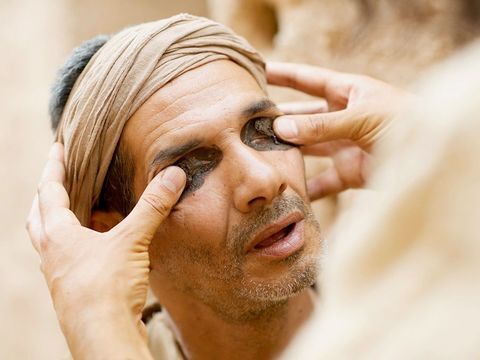
During this pandemic Covid-19 outbreak, the following things are noticeable: first, the number of the affected people are on an increase at least in some parts of the world; second, at the spiritual level, many people connect the disease with human sinfulness; third, so far there was no medicine available for Covid-19, though recently a vaccine is made available; fourth, people are made aware of the need to wash and be clean; and fifth, even the family members disown the affected people.
A critical question is: ‘Why such a situation emerged in the global scenario?’ The life situation of the Johannine believers may throw some light on it.
The man born blind in John 9 underwent a similar situation in the early decades of Christianity. His life-situation is reminiscent to the current scenario: first, he was born and lived as a blind man, hence he was suffering from it for a prolonged period of time; second, the Jews usually connected the blindness with his or his parents’ sinfulness, but Jesus says that “this happened so that the work of God might be displayed in his life”; third, there was no physician available to cure his blindness, but Jesus spat on the ground, made some mud with the saliva, and put it on the man’s eyes; fourth, as it is instructed today, Jesus asks him to go and wash in the Pool of Siloam; and fifth, the parents of the healed man disowned him in public.
Here we see a connectivity between the life situations of the Johannine believers with that of ours.
The man foreshadows Jesus in several ways: first, just as the Jews considered Jesus as a sinner (9:16b, 24), the man was also considered a sinner (9:2, 34); second, as Jesus underwent trial (chaps. 18-19), the man is now under trial (9:13-34); third, as Jesus was in agony and he was alone during his last hours (chaps. 18-19), the man was left all alone and his parents disowned him (9:18-23); fourth, as Jesus was the Truth of God (1:17; 14:6), the man was a seeker of truth; fifth, as Jesus was out from the guild of the Jewish community, the man was sent out of the Synagogue (9:34b, 35); sixth, as Jesus was baptized in the River Jordan (1:31), the man washed himself in the Pool of Siloam (9:7, 11, 15); seventh, as Jesus testified about His Father, the man testifies concerning Jesus (9:11, 17, 30-33); eighth, as the Jews hurled insults on Jesus, the man was suffering from insults (9:28); and ninth, as Jesus had a full vision (both external and internal), the man receives a complete vision (9:39-41).
In that sense, the man realigns himself in Jesus. The man accelerates his faith in Jesus through his confessions: first, he says, “the man they call Jesus” (9:11); second, he considers “He [Jesus] is a prophet” (9:17); third, the man accepts that Jesus is from God (9:30-33); fourth, he says, “Lord, I believe” (9:38a); and fifth, he worshipped Jesus (9:38b). The man was making a steady progress in his belief, irrespective of the growing opposition from the Jews.
The difficulties in our life during the pandemic Covid-19 outbreak is an important concern; but the way we build our faith in Jesus irrespective of the tragic situations is the eternal concern.
www.LumoProject.com / LUMO Photo taken from www.freebibleimages.org









